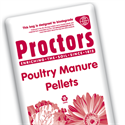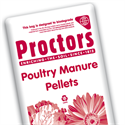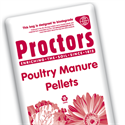There are 133 item(s) in your cart.
Unit price: £1,584.00 incl VAT
Quantity: 2
Sub-Total: £24,310.26 incl VAT
Featured products
Autumn & Winter Lawn Feed 3-10-5 20kg Bag
A fertiliser that is often overlooked, but all good lawns need an Autumn/Winter feed as well as the summer feed most of us do without question.
£38.10 incl VAT
Autumn & Winter Outfield 3-12-12 500kg (25x20kg Bags)
To strengthen sward for autumn/winter use.
£750.00 incl VAT
Blood Fish & Bone 5.5-8-6 5kg Tub
This organic based powder fertiliser, is an excellent alternative to Growmore.
£16.11 incl VAT
Calcified Seaweed 1000kg (40x25kg Bags)
The cycle created by this organic fertiliser is a significant reason for its importance.
£1,452.00 incl VAT
Compost Activator 20kg Bag
Create your own nutrient rich compost with this gritty, organic based powder compost activator.
£23.64 incl VAT
Growmore 7-7-7 20kg Bag
Developed after World War 2, it was probably the most well-known general all-purpose fertiliser in the market place.
Analysis: 7-7-7
£36.24 incl VAT
John Innes Base 20kg Bag
This specialist fertiliser was developed by the John Innes Institute as a balanced fertiliser base for soil based composts.
£42.60 incl VAT
Lawn Feed, Weed & Moss Killer 2000 10-2-1.7 + 8% Fe 20kg Bag
A cost effective micro-granular fertiliser for control of moss and weeds, including broadleaved weed species, while feeding grass for a lush green lawn.
£41.28 incl VAT
Pony Paddock 5.5-8-6 20kg Bag
This specifically formulated organic based fertiliser is for use on Pony grazing paddocks.
£38.88 incl VAT
Poultry Manure Pellets 1000kg (50 x 20kg Bags)
Used as a non-chemical fertiliser, poultry manure pellets vary in analysis, but typically contain 3% Nitrogen, 2% Phosphate, and 2% Potash, as well as trace elements.
£954.00 incl VAT
Poultry Manure Pellets 20kg Bag
Used as a non-chemical fertiliser, poultry manure pellets vary in analysis, but typically contain 3% Nitrogen, 2% Phosphate, and 2% Potash, as well as trace elements.
£28.68 incl VAT
Poultry Manure Pellets 500kg (25 x 20kg Bags)
Used as a non-chemical fertiliser, poultry manure pellets vary in analysis, but typically contain 3% Nitrogen, 2% Phosphate, and 2% Potash, as well as trace elements.
£552.00 incl VAT
Poultry Pellets 1 tonne bag
A 1 tonne bag of UK produced poultry pellets. Ideal for adding nutrients and organic matter to improve plant growth and soil structure, releasing their nutrients slowly and breaking down naturally to improve the fertility
of the soil.
£618.00 incl VAT
Poultry Pellets half tonne bag
A half tonne bag of UK produced poultry pellets. Ideal for adding nutrients and organic matter to improve plant growth and soil structure, releasing their nutrients slowly and breaking down naturally to improve the fertility
of the soil.
£378.00 incl VAT
Proctors 'Cold Pressed' Liquid Seaweed 1 litre bottle
Perfect for all plants, both inside and out, Proctors Liquid Seaweed will transform your garden and potted plants, producing brighter flowers, greener lawns and delicious vegetables.
£14.10 incl VAT
SG5 Autumn & Winter Microfine 3-6-8 + 4% Fe 20kg
This 3-6-8 autumn/winter fine turf granulated feed has the added advantage of 4% Fe.
£39.18 incl VAT
SG5 Autumn & Winter Microfine 3-6-8 + 4% Fe 5kg
This 3-6-8 Autumn/Winter fine turf granulated feed has the added advantage of 4% Fe.
£18.54 incl VAT
Soil Testing Service
Instructions on how to take your soil test, sample bag, and pre-paid envelope to send sample direct to independent lab. Test is for Phosphate, Potash, Magnesium and pH.
Results and recommendations are then sent via email.
£32.00 incl VAT
We've got the fertilisers you need, whatever the application:
























